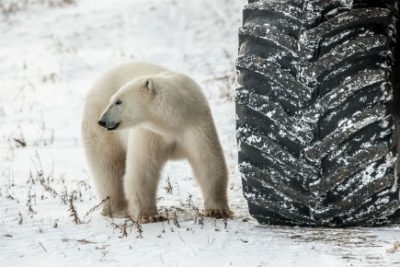 Carleton University’s J.L. McCune, a postdoctoral fellow with the Geomatics and Landscape Ecology Research Laboratory in the Department of Biology, has published a nation-wide study investigating the commitment of Canadians to preserving endangered species.
Carleton University’s J.L. McCune, a postdoctoral fellow with the Geomatics and Landscape Ecology Research Laboratory in the Department of Biology, has published a nation-wide study investigating the commitment of Canadians to preserving endangered species.
The survey was designed by a team of conservation biologists supported by the national Liber Ero fellowship program. It asked some tough questions about the sacrifices people were willing to make for the sake of conservation.
“Most Canadians are clearly committed to the idea of saving species, and they recognize that human activities have to be limited in order to do so”, said McCune. “But at the same time they worry about losing jobs and having their property regulated. Canada needs to develop policy for protecting species that takes these worries into account, by making it clear how much the limitation of industry will affect jobs, and by supporting programs that encourage voluntary conservation on private land.”
The survey suggests that 89 per cent of people think that saving species from extinction is important. Most respondents, 80 per cent, also agreed with the need to limit industry in some areas in order to protect species. Just 63 per cent of people agreed that private property rights also need to be limited.
Hundreds of species of plants and animals in Canada are in danger of vanishing from the country, in large part because people continue to develop land and water for industry, housing, transportation and recreation. To protect species, Canadians will have to reduce their impact in certain areas. How much Canadians support this reduced impact, will determine the degree to which politicians and policy will take steps to protect endangered species.
 McCune and her colleagues commissioned Ipsos to administer the Internet survey, which was completed by 1,000 Canadians. It included general questions about whether preventing extinction is important, and whether limiting human activities is necessary to do so. Other questions asked about particular species and particular activities.
McCune and her colleagues commissioned Ipsos to administer the Internet survey, which was completed by 1,000 Canadians. It included general questions about whether preventing extinction is important, and whether limiting human activities is necessary to do so. Other questions asked about particular species and particular activities.
The study is published in the open-access journal FACETS and is available at www.facetsjournal.com/article/facets-2016-0054